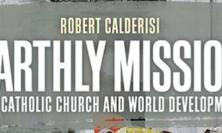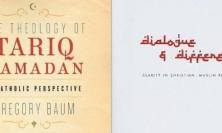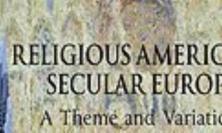Some books have a sacramental quality. The fact that they exist is, in some sense, an outward sign of an extraordinary gift God has bestowed upon His people. This is just such a volume, and the gift which it makes abundantly manifest is one that only a few Christians even know about, still less cherish as they ought.
Christian Lives is a collection of the personal testimonies of a group of Christians from around the world who have devoted themselves to the study of Islam and to the task of building good relations with Muslims. The stories have been painstakingly gathered by two of their number, the German Jesuit scholar, Christian Troll, and one of his former students, the English Islamicist and exponent of adult education and dialogue, Chris Hewer. It is hard to think of a more fitting symbol than this book to capture the achievements of the first fifty years of the Church of the Second Vatican Council.
The first thing that is so impressive is the sheer number of stories there are to tell: 28 in all, Catholics (overwhelmingly religious, predominantly White Fathers and Sisters, Jesuits and Dominicans) and Protestants, ministers and lay people, Europeans, Americans and Australians, spanning between them several generations from the early fifties all the way to the ripe old age of ninety-nine (the Anglican, Bishop Kenneth Cragg, died recently, just shy of his century). But the 28 are hardly the full story. One knows of plenty of others, too, who could have been included alongside them as well as more either side of the generations covered here. It is, in short, an astonishing truth that the Churches have asked some of their most extraordinary sons and daughters to give themselves to an apostolate which is at best obscure and little-understood, at worst takes them to an austere border country which not a few have found too arid to bear. (One might mention too, that small but important sub-class of Christian students of Islam who opted to cross that boundary and whose stories, for obvious reasons, are not told here either.)
What do these generations have in common? For one thing, the epoch of ‘the end of Empire’, those last few decades in the 60s and 70s when not a few French and British, among others, still hankered after a paternalist role in places like Africa and South Asia, and where missionaries could avail themselves of the educational institutions of the orientalist enterprise which the imperial process had forged. This is particularly clear in the case of France’s on-going and tortured involvement in North Africa. For another thing, the earthquake of Vatican II figures in most of the narratives at some point, often as a confirmation of an outreach to people of other faiths which had previously been theorised in more classical terms but experienced, nonetheless, as a genuine human encounter of esteem and openness. And a last thing: the various people assembled here are remarkable for their strength of character, their persistence and the power of their vision. Having met a good number of them, I can vouch for that.
Beyond that, there is a great deal of variety. Some found themselves immersed in the Muslim world through the working out of post-colonial guilt, some out of obedience to their religious superiors. Others again, had fallen for a rather romantic picture of Islam or become interested in Sufism. Others, still, found Islam a challenge to their own Christian faith and wanted to confront it rather than duck the big questions. The most significant, to my mind, are those who found themselves responding in some way to the invitation of Muslims themselves.
The work of outreach to Muslims takes a Christian to a frontier where one has to settle for a certain irresolvable cognitive dissonance. Islam has a trenchant critique of Christian faith. Being receptive to that critique yet without giving up one’s discipleship of Christ is not a comfortable manoeuvre to pull off. It can make for an austere life. What is interesting is to read how each person here manages it. Few are those who do not experience it as having a high cost, even fewer those who find it unfruitful. In some it breeds a deep eschatological sense that current differences held sincerely will one day be resolved by God, in others a discovery that friendship and shared respect suffice to overcome contradictions that just will not go away. There are even hints of a special form of koinonia (communion), a deep mutual interiority possible between individual Muslims and Christians of sufficient openness and generosity. However it works itself out, it seems frequently to bring a deeper commitment to Christian faith and a more human knowledge of Christ as Saviour.
There are also nuggets of profound theological and missiological significance wrapped up in tight autobiographical observations. The French White Father, Jean-Marie Gaudeul, speaks of his studies of his own order’s missionary strategy in North Africa:
Our priority in Muslim circles […] was to speak of the Kingdom, as Jesus did in his sermons. He did not call people to become Christians; he called them to respond to God’s call as little children. From there the Spirit of God would lead them wherever he wanted. These orientations were followed for a time but they were often overlaid with the desire to work for the Church as an institution. The spread of violent conflicts in Muslim countries then reduced the witness to silence; hence the lack of clarity in the minds of those who has come on the scene later. (p. 98).
If it is, at times, an austere place in which to eke out an existence, the reasons that make it so will probably also mean that this book does not receive the attention it deserves. If Muslims are frequently oblivious to the efforts of Christians to understand their religion and to make Christian sense of it, even more Christians are positively suspicious of them, having recourse to ‘experts on Islam’ only when the stereotypes need urgent de-bunking (or, worse, confirmation). It would be a major breakthrough if just some Christian readers manage to take to heart this sign of the times and to allow such a cloud of witnesses to help them to re-examine their own assumptions and attitudes. It is even conceivable that a few Muslims might peruse these pages and find in them a much needed explanation of the context from which their Christian partners in dialogue come, their hopes and fears as well as their evident delight to be working in this area.
The American Jesuit, Thomas Michel expresses his deepest wish and I suspect that everyone in this volume would agree:
If through our mutual encounters we become Muslims and Christians who are more loving and more devoted to the truth, and more eager to do God’s will in all things, I will praise the God we jointly worship for bringing this about. (p.187)
The reviewer, Damian Howard SJ, lectures in Heythrop College, University of London and is a member of the editorial board of Thinking Faith.
![]() Find this book on the Fordham University Press web site.
Find this book on the Fordham University Press web site.
![]() Shop for this book on Amazon, giving a 5% cut to the Jesuit Refugee Service, UK
Shop for this book on Amazon, giving a 5% cut to the Jesuit Refugee Service, UK






